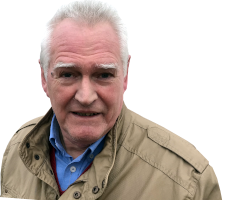search
date/time
 | Yorkshire Times Weekend Edition |

Mike Tilling
Arts Correspondent
11:59 AM 3rd May 2023
arts
Discovering Dimash Kudaibergen

They will be confused, but they will suggest probably at least three: a baritone, a tenor and a soprano. But hang on, whoever they are they can also sing in at least three styles: operatic, musical theatre and metal.
The reason for the confusion is, of course, that the integrated nature of the notes means it can only be achieved by one person singing alone. Eyes open, there he is, a slight young figure in a dark suit, jet black hair, parted in the middle, quite comfortable in seven octaves and switching seamlessly between each one.
Unless you are dedicated to trawling YouTube, as I am, you may not have heard of him. He was born in Kazakhstan and both parents were opera singers. His voice is remarkable, in fact, I would suggest, ‘unique’ might be a more appropriate adjective. What he can do with that voice can only be the result of hours of practice.
The response to first hearing him sing, for many people, is to laugh. This is not because there is anything risible about his voice, but the sound is so far beyond normal human experience that laughing is a default position when confronted by such an unusual experience. As soon as ears are accustomed to the experience, jaws drop in astonishment.
All of the above may have given you the impression that my musical knowledge, particularly in singing technique, is extensive. To have implied such proficiency would be fraudulent. All of the specialist vocabulary I have learned comes from from conversation with those of greater expertise. What I do understand is performance. For Dimash, this is usually understated.
Dimash paints pictures for us with his interpretation of lyrics. Take a song like S.O.S (nothing to do with ABBA). He starts the voyage with gentle subtlety. Singing about a bird, he takes us high, soaring above the ground like Vaughan Williams’s Lark – all head voice. Suddenly he detonates a full belt that leaves us in no doubt about his ability to project immense power. As he throws himself into each compelling phrase, his hand is held high, palm open; eyes projecting despair. The last notes return us to the calm serenity of the opening.
Clearly, he is very well rehearsed for this piece and has sung it many times, but that does not diminish our experience of his performance. It feels fresh on each viewing because you want to confirm that one person can do so much with the human voice.
If you do take the trouble to explore his work, and you have a taste for vocal pyrotechnics, you will not be disappointed.